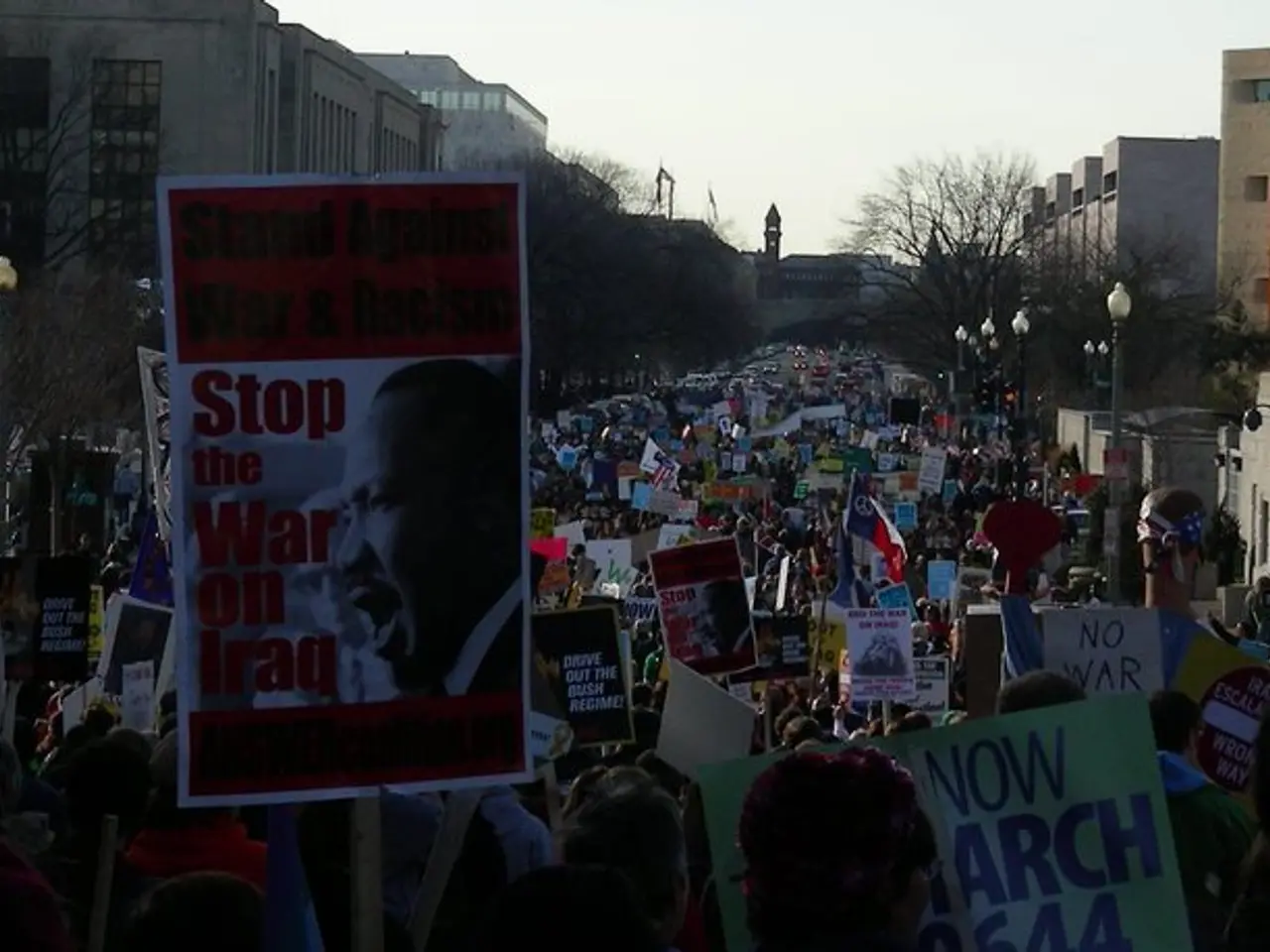Is It Legal for Israel to Assassinate Iran's Supreme Leader? An Examination Under International Law
Under international law, is it permissible for Israel to assassinate Khamenei?
Netanyahu's provocative rhetoric stirs controversy, as Israel's Defense Minister, Israel Katz, labels Iran's Supreme Leader, Ayatollah Ali Chamenei, the "modern Hitler." Threatening to eliminate him, Katz asserts that had Israel existed during World War II, they would have targeted Hitler in his bunker as well. But is it legally permissible for Israel to assassinate Chamenei? Let's delve into the complexities of international law to answer this question.
According to humanitarian international law, the destruction of military targets is allowed. As Chamenei heads the Iranian armed forces, he could theoretically be deemed a military target. However, it's essential to consider other legal aspects as well.
The use of force in international relations is subject to the United Nations Charter and customary international law. Israel must have authorization from the UN Security Council or be acting in self-defense after an armed attack to use force against another state. Without such authorization, the attack on Chamenei could potentially be challenged as a violation of this ban on force.
Under humanitarian international law, there's an inherent right to life, but this right can be forfeited during war if the killing is done in accordance with international humanitarian law. In the case of Chamenei, if Israeli forces deemed him a legitimate military target and his death was necessary to protect their interests during an armed conflict, it might be defensible under this provision.
Critics might argue that Israel's attack would lead to high civilian casualties, as civilians should not be targeted during conflict under international law. Proportionality becomes a critical factor here—the potential losses on the civilian side must be weighed against the military necessity of a strike against Chamenei. Israel must also take measures to minimize harm to civilians, as required by international humanitarian law.
It is essential to consider that Israel has withdrawn its declaration of acceptance of the jurisdiction of the International Court of Justice, making it harder for the court to hold Israel accountable if Chamenei is targeted and killed, absent any evidence of self-defense.
Assassination of political leaders like Chamenei is typically considered a violation of fundamental principles of sovereignty, acting against international peace, and undermining global order. While self-defense might provide a slim justification in specific scenarios, an attack on a nation's top political and religious figure usually lacks the legal legitimacy required under international law.
In conclusion, the assassination of Iran's Supreme Leader Ayatollah Ali Chamenei by Israel would likely face serious challenges under international law. Such action could potentially be viewed as a violation of the prohibition on the use of force, absent clear evidence of self-defense after an armed attack. Assassination as a tool of state policy is generally regarded as an unlawful act that leads to destabilization and broader conflict, threatening international order.
- Israel
- Iran
- Assassination
- International Law
- Use of Force
- Ayatollah Ali Chamenei
- Sovereignty
- Military Targets
- Civilian Casualties
- United Nations Security Council
- International Court of Justice
The proposed question and corresponding sentences are:
Question: Which of the following scenarios is considered a violation of fundamental principles of sovereignty, acting against international peace, and undermining global order?
Solution: Assassination of political leaders like Ayatollah Ali Chamenei, such as by Israel or any other nation.
Question: What legal authorization does Israel need under the United Nations Charter and customary international law to use force against another state, in this case Iran?
Solution: Israel must have authorization from the UN Security Council or be acting in self-defense after an armed attack to use force against Iran (or any other state).




